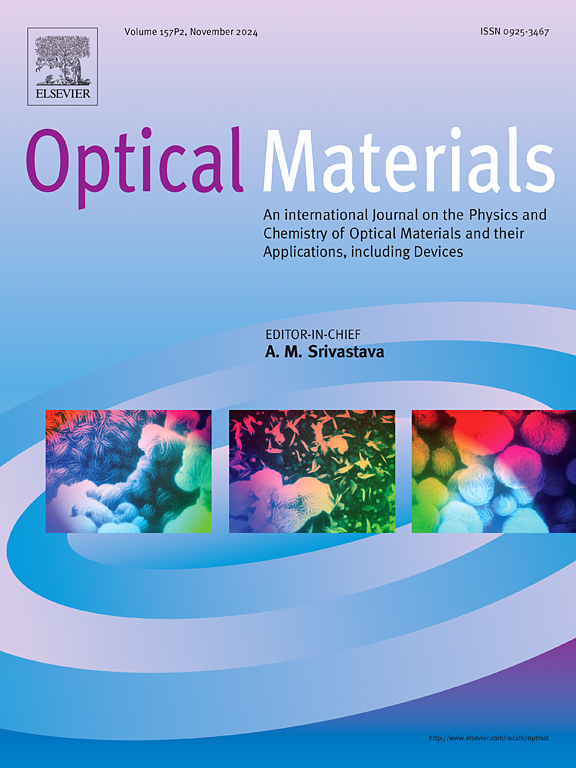Exploring the potential of SnSe/PANi composite counter electrodes for improved efficiency in dye-sensitized solar cells
IF 3.8
3区 材料科学
Q2 MATERIALS SCIENCE, MULTIDISCIPLINARY
引用次数: 0
Abstract
This paper investigates the synthesis and characterization of novel counter electrodes (CEs) for dye-sensitized solar cells (DSSCs), focusing on composite polyaniline (PANi) nanofibers integrated with tin selenide (SnSe). Three CEs, namely SnSe, PANi, and their composite, were prepared via facile hydrothermal and cyclic voltammetry methods and compared with a standard platinum (Pt) CE. The efficiencies obtained were 4.20 %, 5.63 %, 8.39 %, and 7.72 % for SnSe, PANi, SnSe/PANi, and Pt CEs, respectively. The improved efficiencies, particularly in the case of the SnSe/PANi composite, were attributed to increased short-circuit density of the composite sample. The materials and devices prepared in this study are characterized using various methods including FESEM, TEM, XRD, Raman and FTIR spectroscopies, EIS, Tafel, OCVD, IPCE and etc to support our proposed CE structure. Our findings demonstrate the promising potential of SnSe/PANi composite CEs in enhancing the performance and affordability of DSSCs.
探索 SnSe/PANi 复合对电极提高染料敏化太阳能电池效率的潜力
本文研究了用于染料敏化太阳能电池(DSSC)的新型对电极(CE)的合成和表征,重点是与硒化锡(SnSe)集成的复合聚苯胺(PANi)纳米纤维。通过简便的水热法和循环伏安法制备了三种 CE,即 SnSe、PANi 及其复合材料,并与标准铂 (Pt) CE 进行了比较。SnSe、PANi、SnSe/PANi 和铂 CE 的效率分别为 4.20%、5.63%、8.39% 和 7.72%。效率的提高,特别是 SnSe/PANi 复合材料效率的提高,归因于复合材料样品短路密度的增加。本研究使用各种方法对制备的材料和器件进行了表征,包括 FESEM、TEM、XRD、拉曼光谱和傅立叶变换红外光谱、EIS、Tafel、OCVD、IPCE 等,以支持我们提出的 CE 结构。我们的研究结果证明了 SnSe/PANi 复合 CE 在提高 DSSC 性能和经济性方面的巨大潜力。
本文章由计算机程序翻译,如有差异,请以英文原文为准。
求助全文
约1分钟内获得全文
求助全文
来源期刊

Optical Materials
工程技术-材料科学:综合
CiteScore
6.60
自引率
12.80%
发文量
1265
审稿时长
38 days
期刊介绍:
Optical Materials has an open access mirror journal Optical Materials: X, sharing the same aims and scope, editorial team, submission system and rigorous peer review.
The purpose of Optical Materials is to provide a means of communication and technology transfer between researchers who are interested in materials for potential device applications. The journal publishes original papers and review articles on the design, synthesis, characterisation and applications of optical materials.
OPTICAL MATERIALS focuses on:
• Optical Properties of Material Systems;
• The Materials Aspects of Optical Phenomena;
• The Materials Aspects of Devices and Applications.
Authors can submit separate research elements describing their data to Data in Brief and methods to Methods X.
 求助内容:
求助内容: 应助结果提醒方式:
应助结果提醒方式:


